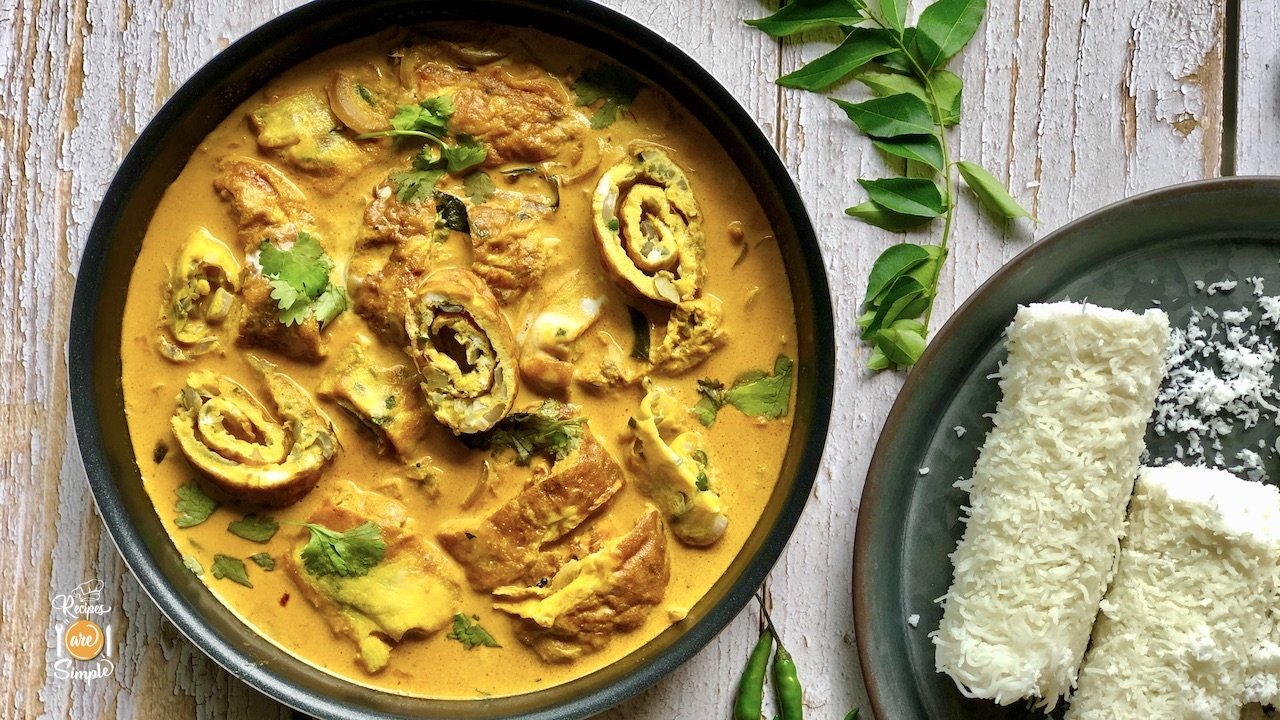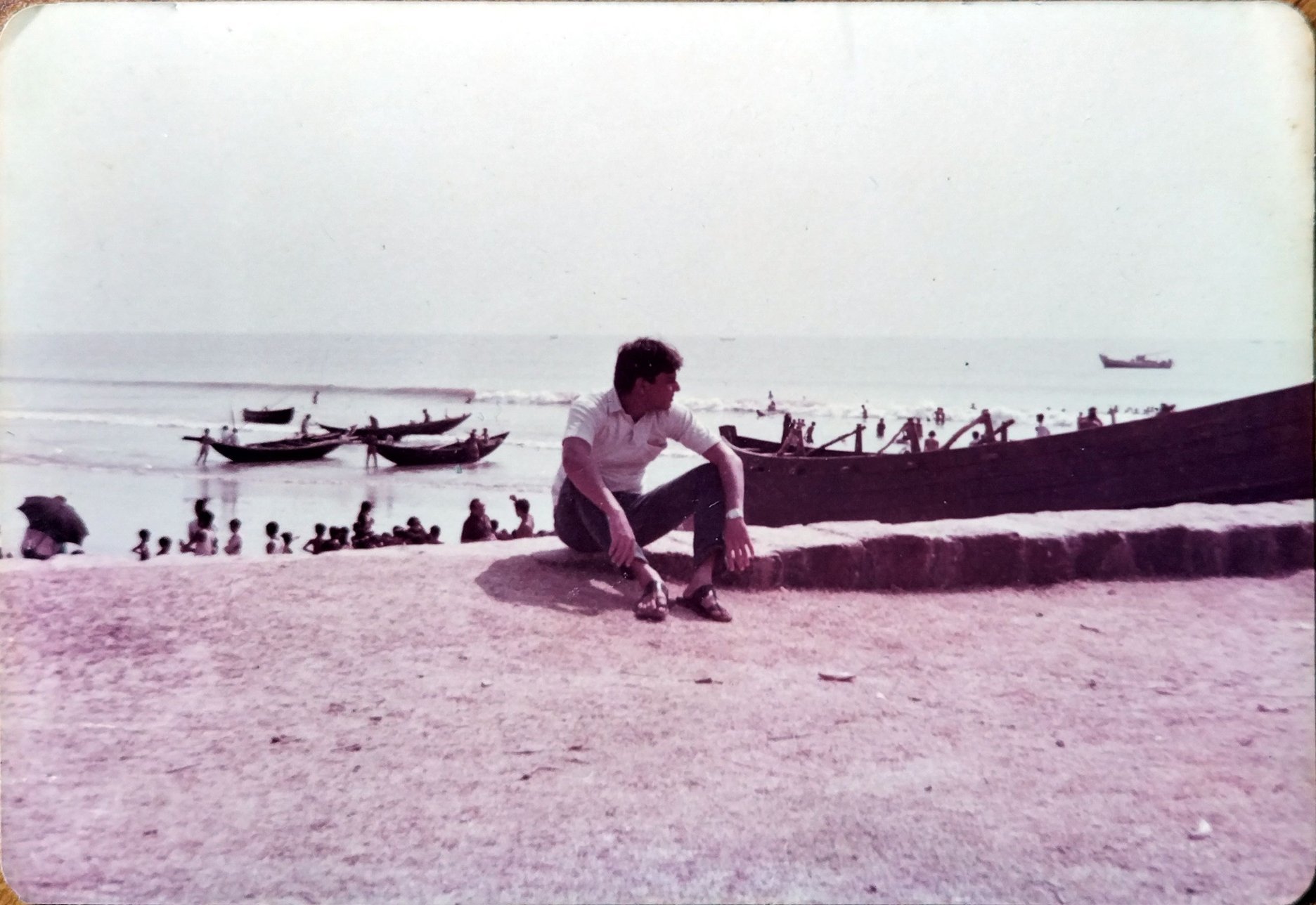Edible Archives Finds a New Home in Goa

As Chef Anumitra Ghosh Dastidar opens the doors to her new restaurant in Goa, Joshua Muyiwa talks to her about the culinary journey that culminated in Edible Archives, a project that lies at the intersection of food, art and memory.
“I loved eating good food before I even began to cook,” Chef Anumitra Dastidar Ghosh cheekily admits. She’ll track down a good meal anywhere. Her favourite dish in Goa — her home at this time — is at a secret spot that serves smoked mackerel. The silver-haired gentleman there serves it old-school: charred over burning mango leaves, stuffed with a single, sizeable split green chilli and finished with a squeeze of fresh lime. “I can’t eat a bad meal,” she declares as we pick the flesh off the fish — so perfectly done. And I soon learn: a good meal doesn’t have to be anything entirely elaborate. We went on to eat a homely, spiced prawn curry — plump prawns fried in a crisp coat of rava, rings of calamari swimming in a garlicky butter sauce, a simple dal, and greens gram garnished with fresh coconut. The servings were generous and not a single note on any dish was heavy-handed; it was just right.
While the rest of the table dug into the meal, Anumitra made herself a plate from the offerings that tempted this writer to try it out too. She drizzled her rice with garlicky butter sauce, mashed down the green chilli that she’d saved from the mackerel starter, more fresh lime, and ate this heavenly mix with the rava-fried prawns and a little bit of green gram. Each bite was delicious, decadent and divine. “I don’t conceptualise food like 250 grams of meat and some greens. I like to think of my food the way I grew up eating it — always some meat or fish, substantial vegetables, some greens and a grain,” she explains.
Anumitra always wanted to be a chef but growing up in a family of good cooks, it wasn’t given much credence. “It did help that my family was obsessed with food — my father would track down Balam rice from Bangladesh to eat with his hilsa,” she says, illustrating the family’s attention to detail around food. Her first vivid memory of food was following her maternal great-grandmother around her kitchen garden like a puppy, plucking and preparing pumpkin flowers for a meal. “My mother’s grandmother lived in her own house, right next to ours, and I would spend most of my time there, until I was ten. And I had to do something or the other to earn my meal; it was never free,” she laughs. Without realising it, Anumintra observed and absorbed every little action in the kitchen. “And many years later, when I started cooking, my mother would point out that I play with flavours in the same way that my great-grandmother did,” she says. “Basically, I like my food wholesome and rustic.”
Old Paris Beef named for an old restaurant in Kerala that serves a spiced, slow-roasted beef, with root-based carbs instead of grains - local elephant yam, sweet potatoes, tapioca, and a salad of homegrown greens.
The Edible Archives bowl features 2 types of indigenous rice, several vegetables or curries, and a one non-veg element
This grounding has been the backbone of Anumitra’s cooking philosophy, though for her family’s sake, she did finish her Ph.D in Cognitive Linguistics before turning to food. While doing her Ph.D, she began working in a kitchen with chef Tamura San, who ran the eponymously named Japanese restaurant — the oldest one in Delhi. “I didn’t care about cuisine — I was interested in the type of food: some meat, vegetables and grain. And I really liked his food. I would call him non-stop and ask him for a position in the kitchen — I was willing to do anything. And he’d always politely say no,” she smiles. Until quite unexpectedly, when one of the utility staff didn’t show up, he called her to fill in. “I washed dishes for twelve hours straight, and continued to do so for the next three months. He [chef Tamura San] noticed that I didn’t complain and just did my work. Then one day, things changed — he began to act as a teacher, and let me train at every station,” she explains. Anumitra spent ten months on this rotation before setting out to make her first dish at the restaurant. “I didn’t become a chef overnight, I learned to do everything in the kitchen,” she adds.
Serendipitously, she landed a fellowship in Japan and began working in kitchens there for a few months. On returning, she started a pop-up called ‘Bento Bong,’ that became hugely popular in Delhi, and ran for close to two years. That caught the attention of investors, and it wasn’t long before Anumitra opened her first restaurant — Big Bong Theory, in the hip neighbourhood of Shahpur Jat. “With my training in Japanese food, I had stepped outwards. But with starting my own restaurant, I wanted to turn inward. I wanted to return to my own memories of food; things that I had grown up eating,” she says. While running her restaurant, she also worked as a consultant with chef Ritu Dalmia of Diva, an Italian restaurant in Delhi, tasked to create a menu of modern Asian dishes. Over the next several years, she worked with masters of their own cuisine — from studying Thai food in Bangkok, to adding Burmese and Indonesian techniques and dishes to her repertoire.
Edible Archives, the restaurant in Anjuna
Edible Archives, the restaurant in Anjuna
Working in these kitchens, Anumitra earned her chops and sharpened her skills. But she also noticed that these chefs were knowledgeable and particular about their ingredients. “The Thai chef I trained with used to get me water from three different coconuts and ask me to identify: which one was grown closest to the sea, which one from near a river, and which one was from inland, just from tasting it. Another Sardinian chef refused to work with anything but sheep pecorino.” A deep attention to detail was instilled in her ethos. She asked herself: Do I know these kinds of details with regards to my own cuisine? Would I be able to answer these questions on my own turf? She began to pay close attention and focused on experimenting with indigenous ingredients like teppal, a Schezwan pepper-like spice available in Goa, used as souring agent in fish curries; or making black rice risotto, or tracking down Indian rice varieties that had similar qualities of jasmine rice but didn’t need to be imported.
After nearly a decade confined to kitchens, shadowing the greats, and experimenting endlessly, Anumitra decided to quit and travel, to learn about the source of these indigenous ingredients. and connect with the farmers. The opportunity to present these learnings was made possible at Edible Archives, a project that lies at the intersection of food, art and memory, at the most recent edition of the Kochi-Muziris Biennale. After a successful run at the biennale, and spending more time travelling, Anumitra decided to turn the concept into a restaurant in Goa.
“While at Kochi, the focus was on rice and its diversity, at the restaurant, I want to show diversity with regard to other ingredients, like chilies, vegetables, wheat, millets and so on,” she explains. “Edible Archives in Goa will play the role of research centre and restaurant. While we will continue to connect with producers and encourage them to grow these varieties, the restaurant will be the lab to experiment and present the ways that one can use this ingredients in one’s everyday meals,” she adds. “The diversity of ingredients in India comes from over a thousand years of observation, and each variety has been reared to withstand the region’s environmental factors. And if we lose the way of eating these things, then they won’t be grown and they’ll be lost forever. And I don’t want them to disappear. This is my main motivation,” she announces.
Edible Archives opens on December 17th.
Address: Anjuna-Mapusa Road, Near St Michael's Church, Anjuna, Goa, 403509. Tel: 8308830750
Joshua Muyiwa is a Bangalore-based poet, columnist and freelance writer. You can follow him @silverbangled
ALSO ON THE GOYA JOURNAL













